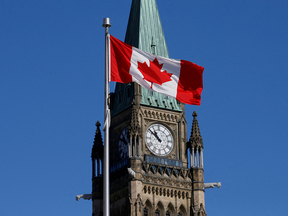Federal Minimum Wage Rising to $16.65 per Hour on April 1
The federal minimum wage in Canada is set to increase by $1.10, rising from $15.55 to $16.65 per hour as of April 1. This change reflects the government’s commitment to keeping pace with inflation and ensuring that workers receive a fair wage for their labor.
Background on Federal Minimum Wage
The federal minimum wage applies to employees working in federally regulated industries, including banks, postal services, courier companies, and interprovincial transportation providers. The federal rate is typically higher than those set by provinces and territories, but employers must pay the higher rate if it exceeds the federal minimum.
The government has been gradually increasing the federal minimum wage over the years to reflect inflation and rising costs of living. In 2021, the rate was set at $15 per hour, and since then, it has increased annually on April 1 to account for the growing cost of living.
Rationale Behind the Increase
The increase in the federal minimum wage is based on the consumer price index (CPI), which rose by 6.8% in 2022. This means that workers will receive a higher hourly rate as a result of inflation, ensuring they can maintain their standard of living.
Impact on Employers and Employees
While some employers may face increased costs due to the higher minimum wage, others argue that this is essential for maintaining fair compensation and promoting economic growth. By paying workers a higher minimum wage, employers are also incentivized to invest in employee training and development, which can lead to improved productivity and competitiveness.
For employees, this increase means they will take home more money from their hourly earnings. This boost to disposable income can be significant, especially for those working low-wage jobs or struggling to make ends meet.
What You Need to Know About the Change
- The federal minimum wage will rise by $1.10 on April 1, reaching $16.65 per hour.
- This change affects federally regulated industries, including banks, postal services, courier companies, and interprovincial transportation providers.
- Employers must pay the higher rate if it exceeds the federal minimum wage, which can vary depending on provincial or territorial rates.
Implications for Canada’s Economy
The increase in the federal minimum wage is likely to have both positive and negative effects on Canada’s economy. On one hand, it may boost consumer spending as workers take home more money from their hourly earnings. This could lead to increased economic growth and job creation.
On the other hand, some employers may struggle to absorb the costs of higher wages, potentially leading to reduced profits or even layoffs. However, many argue that a fair minimum wage is essential for maintaining a healthy economy and promoting social welfare.
Conclusion
The federal minimum wage increase from $15.55 to $16.65 per hour on April 1 reflects the government’s commitment to keeping pace with inflation and ensuring workers receive a fair wage. While this change may have varying effects on employers and employees, it is an essential step towards maintaining a strong economy and promoting social welfare.
Additional Resources
For more information on the federal minimum wage and its implications for Canada’s economy, readers can consult the following resources:
- Government of Canada: Federal Minimum Wage
- Statistics Canada: Consumer Price Index (CPI)
- Canadian Labour Congress: Minimum Wage Campaign



